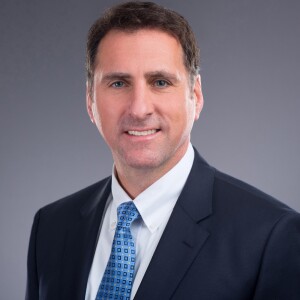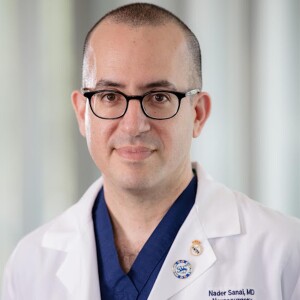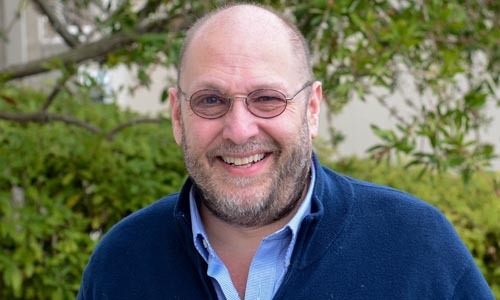Episodes

Wednesday Jul 12, 2023
Reimagining the Development of Immunotherapies with a Venture Studio
Wednesday Jul 12, 2023
Wednesday Jul 12, 2023
For academic scientists who make groundbreaking discoveries that can lead to new medicines, bridging the so-called valley of death—the gulf between the lab and having a validated candidate that is ready to begin human clinical trials—continues to be daunting. Foundery Innovations, which bills itself as a venture studio, sees a big opportunity in partnering with academic researchers to carry promising new immunotherapies through to the clinic. Its team has deep experience in immunotherapy development and brings a wide range of skills and cutting-edge platform technologies to de-risk development and accelerate the time to the clinic. We spoke to Max Krummel, founder and managing member of Foundery Innovations, about the venture studio’s business model, the resources it brings to bear, and how it works with academic researchers and universities.

Wednesday Jul 05, 2023
Repairing the Body with Advanced Cell Therapies
Wednesday Jul 05, 2023
Wednesday Jul 05, 2023
Vericel, which acquired Sanofi’s cell therapy and regenerative medicine unit, markets advanced cell therapy products for sports medicine and severe burn care. The company’s MACI is an autologous cellularized scaffold used in the repair of cartilage defects of the knee. Epicel, its cultured epidermal autografts, are a permanent skin replacement for the treatment of patients with deep dermal or full thickness burns greater than or equal to 30 percent of total body surface area. We spoke to Nick Colangelo, president and CEO of Vericel, about the markets the company is targeting, how its products are changing outcomes for patients, and the company’s plans for growth.

Wednesday Jun 28, 2023
Achieving Precision with AI Pathology
Wednesday Jun 28, 2023
Wednesday Jun 28, 2023
Understanding the physical relationship of cells and how they interact can provide new understanding of diseases and help improve drug development and clinical treatment decisions. Nucleai uses its AI-powered spatial biology platform to transform pathology data into insights. The digital assays it develops enhances drug development, supports treatment decisions, and helps stratify patients to improve care. We spoke to Ken Bloom, head of pathology for Nucleai, about the company’s AI spatial biology platform, how it works, and the potential it has to advance precision medicine.

Wednesday Jun 21, 2023
Inducing Potent and Durable T Cell Responses to Fight Disease
Wednesday Jun 21, 2023
Wednesday Jun 21, 2023
Vaccitech first gained attention as co-inventor of the Covid-19 vaccine licensed to AstraZeneca. The University of Oxford spin-out is developing a pipeline of T cell immunotherapies to treat and cure chronic infectious diseases, autoimmune diseases, and cancers. The company’s lead experimental therapy is a potentially curative monotherapy for chronic hepatitis B viral infection. We spoke to Bill Enright, CEO of Vaccitech, about the company’s platform technologies, how they work, and how they enable the development of more effective immunotherapies.

Wednesday Jun 14, 2023
Developing Immunotherapies that Target the Drivers of Cancer
Wednesday Jun 14, 2023
Wednesday Jun 14, 2023
One reason that CAR T therapies haven’t been more effective at treating solid tumors is their reliance on targeting antigens on the surface of cells, which can often be present on healthy cells as well. Affini-T Therapeutics is addressing this weakness in current cell therapies by using its platform technology to develop T cell receptor engineered T cells. Its so-called TCR-T cells are able to recognize intracellular targets and attack the drivers of mutations that are inaccessible to CAR-T therapies. We spoke to Jak Knowles, CEO of Affini-T Therapeutics, about the company’s TCR-T cell therapies, how they are engineered, and why they have the potential to be effective at treating solid tumors that have evaded the power of CAR T therapies.

Wednesday Jun 07, 2023
Using Phase 0 Trials to Bring Precision Medicine to Treating Brain Tumors
Wednesday Jun 07, 2023
Wednesday Jun 07, 2023
More than 138,000 people in the United States and 1.4 million people worldwide are struggling with malignant brain tumors. The average five-year survival rate of people with the most common malignant brain tumor—glioblastoma multiforme—is less than 5 percent and there have been no notable improvements in the last three decades. The Ivy Brain Tumor Center is using phase 0 clinical trials to provide individualized treatment to patients with brain tumors. The U.S. Food and Drug Administration introduced phase 0 trials in 2004 to address concerns about the slow pace and high cost of drug development. The phase 0 trial is used to quickly identify how a drug works in a patient and whether it should be fast-tracked for further development. We spoke to Nader Sanai, director of the Ivy Brain Tumor Center and chief of neurosurgical oncology at the Barrow Neurological Institute, about phase 0 clinical trials, how they work, and how they are allowing the center to take a precision medicine approach to treating patients with brain tumors.

Wednesday May 31, 2023
Restoring Feeling and Function to Damaged Nerves
Wednesday May 31, 2023
Wednesday May 31, 2023
Traumatic injuries and surgical procedures can damage peripheral nerves and cause the loss of muscle or organ function, pain, and the loss of sensation. Axogen has a portfolio of regenerative medicine products to enable surgeons to repair peripheral nerves without the need to harvest nerves from a patient’s own body. We spoke to Karen Zaderej, CEO of Axogen, about peripheral nerve injuries, the company’s portfolio of products, and how it is changing the way surgeons can repair and regenerate damaged nerves.

Wednesday May 24, 2023
Enlisting Vaccines in the Fight Against Chronic Diseases
Wednesday May 24, 2023
Wednesday May 24, 2023
About 20 years ago, the number of people dying from chronic diseases surpassed the number of people dying from infectious ones. Though vaccines have contributed to this shift, they’ve generally not been harnessed to address chronic conditions. Vaxxinity is seeking to change that by using vaccine technology to address the growing burden of chronic diseases. It’s advancing a new class of synthetic, peptide-based vaccines designed to activate the body’s immune system to produce antibodies to neurodegenerative, cardiovascular and other chronic diseases. The company’s pipeline includes experimental therapies for Alzheimer’s disease, Parkinson’s disease, and hypercholesterolemia. We spoke to Mei Mei Hu, CEO of Vaxxinity, about the case for using vaccines to address chronic diseases, the benefits this approach provides, and how its platform technology activates the immune system to battle non-communicable diseases.

Daniel Levine
Daniel Levine is an award-winning business journalist who has reported on the life sciences, economic development, and business policy issues throughout his career. He is founder and principal of Levine Media Group, host of The Bio Report and RARECast podcasts, a senior fellow at the Center for Medicine in the Public Interest, and author of Global Genes’ annual NEXT report on emerging trends in the world of rare disease. From 2011 to 2014, he served as the lead editor and writer of Burrill & Company’s acclaimed annual book on the biotech industry. His work has appeared in numerous national publications including The New York Times, The Industry Standard, and TheStreet.com.

